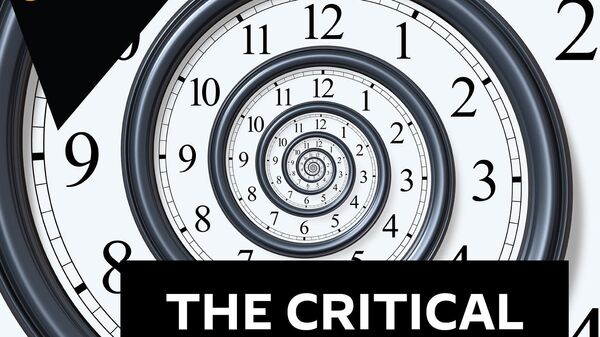US President Trump has vowed to unveil plans on Thursday to reopen the US economy after claiming on Wednesday that the US had "passed the peak" of new coronavirus cases. However, "Sen. Lamar Alexander (R-TN) warned on Wednesday that without an increase in coronavirus testing it would be difficult to start reopening the country," The Hill reported. What are we to make of this?
"During a press conference in the Rose Garden of the White House Wednesday evening, Trump urged Congress to voluntarily vote to end the current legislative session so he can 'recess appoint' nominees without Senate approval," Common Dreams reported Thursday. "Members of Congress are currently in their home districts and not expected to return to Washington, DC, until next month at the earliest due to concerns about the spread of COVID-19." Preposterous? Yes! Alarming?
In a recent piece in The Grayzone, titled "Coronavirus Stimulus Bill Funds State Dept/USAID Operations That Once Helped Trigger Polio Outbreak in Syria," Max Blumenthal writes: "While the $2.2 trillion coronavirus stimulus bill was authored in the spirit of beating back a pandemic, buried deep within its text is a stipend for the US State Department operations dedicated to carrying out foreign interventions that have contributed to the outbreak of preventable diseases like polio in Syria and Pakistan. ... the Coronavirus Aid, Relief, and Economic Security (CARES) Act provides $250 million for the State Department to implement 'economic, security, and stabilization' activities through an 'Economic Support Fund' (ESF). Earmarked for activities through September 2020, the bill authorizes the State Department to fund 'international organizations.'” This sounds very pro-democracy, benevolent and innocuous, but should we think otherwise? Why is there no real corporate media outrage about this? Both sides are involved.
A recent Jacobin article, titled "Incubators of Austerity," says that "libertarian political theorist James Buchanan once argued that democracies are structurally predisposed to deficit spending ... If given the opportunity to vote, he argued, people would happily spend on themselves, and leave future generations the bill." It's likely that those who agree with Buchanan's stance would ardently oppose "the federal government’s response to the coronavirus pandemic, the most important component of which has been the $2 trillion stimulus bill, which is financed by massive deficit spending," the article notes. Is there any other way out from this, and how do neoliberal austerity measures factor into this equation?
GUESTS:
Farajii Muhammad — Community organizer with Strong City Baltimore and host of For The Culture on 88.9 WEAA FM in Baltimore, Maryland.
Leslie Proll — Civil rights lawyer, an adviser to the NAACP on judicial nominations, former NAACP Legal Defense and Educational Fund policy director and former Alabama director of the US Department of Transportation.
Max Blumenthal — Co-founder of The Grayzone Project.
Dr. Linwood Tauheed — Associate professor of economics at the University of Missouri-Kansas City.
We'd love to get your feedback at radio@sputniknews.com



